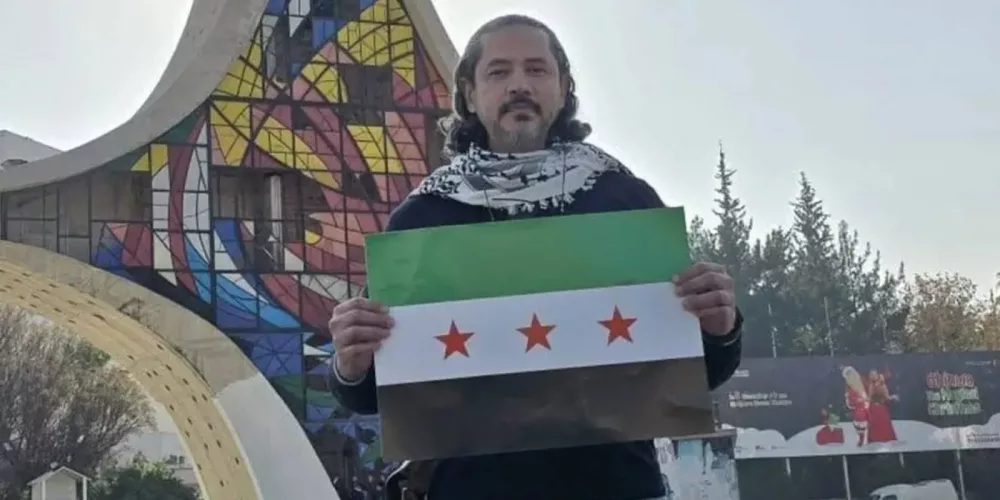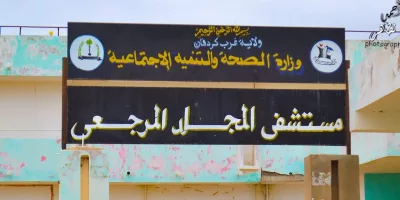The Committee for Justice (CFJ) and Cedar Center for Legal Studies have expressed deep concern over the arrest of Egyptian poet Abdul Rahman Yusuf Al-Qaradawi in Lebanon, warning of the potential risk of his forced deportation to Egypt or the UAE. Such an act—if carried out—would represent a severe violation of Lebanon’s international obligations, especially given the high risks Al-Qaradawi faces, including torture, enforced disappearance, and the lack of necessary guarantees for a fair trial. Both organizations emphasized that such a decision could pave the way for numerous severe human rights violations that directly threaten fundamental human rights, foremost among them the right to life, a core right that must not be infringed.
This comes as the two organizations submitted an urgent appeal to the UN Special Rapporteur on Torture and the UN Special Rapporteur on freedom of opinion and expression, calling on Lebanese authorities not to deport the Egyptian-Turkish citizen Abdul Rahman Al-Qaradawi to Egypt or the United Arab Emirates.
Abdul Rahman Al-Qaradawi, a poet and political activist holding both Egyptian and Turkish citizenships, is a prominent figure in opposing repressive regimes, whether in Egypt or other countries like the UAE. He was detained by Lebanese authorities on December 28, 2024, at the Masnaa border crossing while returning from Syria to Turkey, based on a warrant issued by the Council of Arab Interior Ministers. According to the two organizations, this warrant is politically motivated and serves as a tool for suppressing dissenting voices, making Al-Qaradawi’s arrest part of a regional campaign targeting activists and intellectuals.
In their appeal, the organizations highlighted Egypt’s poor human rights record, where security agencies systematically practice torture, as documented by the UN Committee Against Torture in 2023, in its concluding observation report. These reports revealed that agencies such as the police and intelligence services rely on torture as a primary means to extract confessions, punish political opponents, and intimidate anyone perceived as a threat to the regime.
Methods of torture in Egypt include severe beatings, electric shocks, sleep deprivation, and prolonged solitary confinement. These methods are frequently employed with impunity, as the Egyptian judiciary has shown ineffectiveness in investigating or holding perpetrators accountable for these violations. The main victims of these abuses are political opponents, activists, journalists, and poets like Abdul Rahman Al-Qaradawi, who has previously faced a systematic campaign of defamation and targeting due to his opposition views.
In the UAE, the situation is no better. The country is classified as one of the states that systematically practice torture and arbitrary detention, as noted by the UN Committee Against Torture in 2022, in its Concluding Observations on the on the initial report of the United Arab Emirates. The committee documented that Emirati authorities use harsh repressive measures against political and human rights activists, including enforced disappearances for extended periods and detention without trial or access to lawyers or family members.
The reports outlined that torture in the UAE takes multiple forms, including severe beatings, electric shocks, and psychological torture through prolonged isolation and constant humiliation. These practices occur in an environment of complete impunity, with the judiciary in the UAE acting as a tool of the regime, rendering trials—if they occur at all—mere formalities.
The two organizations stressed that deporting Abdul Rahman Al-Qaradawi would constitute a blatant and flagrant violation of his right to freedom of opinion and expression. Al-Qaradawi has committed no crime other than expressing his political views through his words and poetry. Nonetheless, his dissenting stance has made him a target for repressive regimes seeking to silence critical voices by any means necessary.
The organizations underscored that this violation does not only affect Abdul Rahman but also poses a threat to everyone who believes in freedom of thought and expression—a right guaranteed by international charters such as the Universal Declaration of Human Rights and the International Covenant on Civil and Political Rights, to which Lebanon is a party.
Moreover, the arrest and potential deportation of Abdul Rahman Al-Qaradawi exposes him to imminent risks of physical and psychological torture, which could cause irreparable harm. The possibility of his enforced disappearance or even extrajudicial killing cannot be ruled out, given the records of the regimes he might be deported to. Additionally, he would be denied a fair trial, as the judiciary is used as a tool for political score-settling, with thousands of political prisoners and prisoners of conscience held in these countries’ prisons.
In conclusion CFJ and the CCLS urged the UN Special Rapporteurs to pressure Lebanese authorities to adhere to their international obligations, particularly concerning the principle of non-refoulement as stipulated in Article 3 of the Convention Against Torture. They demanded that Lebanon refrain from deporting Abdul Rahman Al-Qaradawi to any country where he might face torture or ill-treatment and instead allow him to travel to a safe country of his choice that guarantees his safety and rights.
The two organizations emphasized that any decision to deport Al-Qaradawi would mark a stain on Lebanon’s human rights record. They called on the international community and human rights organizations to exert pressure to ensure respect for human rights in this sensitive humanitarian case.






